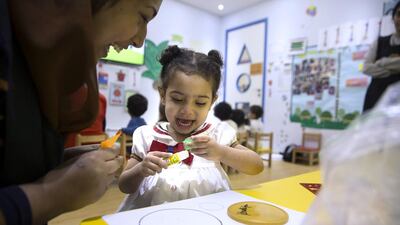These days, women have the option of continuing their careers after childbirth or being stay-at-home mums, and for some, either of these roles may be a necessity. Some may not have the luxury of having their families around to help or aren’t able to afford childcare while they work. For others, the high cost of living in the UAE may make a dual income necessary for the family to survive. In either scenario, there’s tremendous pressure on mothers whose responsibilities have increased as they aim to be “supermums”.
Mothers all around the world tend to be placed on a pedestal with high expectations, as well as a need for validation from society, which is always ready to judge a mother trying to do her best. Working mums, in particular, receive no shortage of judgement, from those who may think they have chosen careers over their families or that working mothers have it easier because they aren’t always there to do the dirty work of raising children. The lives of working mothers and stay-at-home mums are quite different, but each is deserving of acknowledgement and appreciation.
Working mothers carry a guilt that stay-at-home mums may not understand. A stay-at-home mum is able to devote undivided attention to her children. Taking time away for herself is regarded as a well-deserved break because she has spent every other minute of the day raising a family. But the working mother doesn’t always get the same credit and is made to feel guilty for not spending enough time at home. Where does that leave her? Exhausted and on the verge of a breakdown, in an effort to be a supermum.
There’s undue pressure created by society in which the needs of the family supersede our individual ones. The need for quality time alone for mums isn’t really understood and can have a stigma attached to it. It’s as though once you’re a mother, your needs and wants cease to exist and everything revolves around your children.
This is ingrained in many of us, myself included. As a working mum with limited time with my children, I find it impossible to tear myself away from them weeknights and weekends, as I strive to make up for lost time. This leaves little time for myself – sometimes, that “alone time” is simply going to the dentist or doing a grocery run. This means I’m generally in poor health and chronically tired. Yet I continue because I don’t want my children’s memory of me being my back walking out the door to the office or running errands.
This isn’t healthy for anyone, and the guilt needs to stop. This can only be done when there’s sufficient work-life balance for mothers, which unfortunately is not quite yet possible in the UAE. There are insufficient opportunities for mothers to work part-time or with flexible hours, particularly in meaningful, credible jobs. Mothers often have to work twice as hard to prove to their employers that they’re just as dedicated and committed to their job as those who aren’t mothers. It’s a pity that mothers with young children are still seen as a liability during job interviews, with men or single women preferred.
It’s crucial to change this perception and have a cultural shift in which working mothers are valued and appreciated for their contributions to the workforce as well as the home. There needs to be less judgement from the older generations.
A mother knows what works best for her family and needs to ensure that her needs are also met in the process. There must be a balance, with individual needs also being met. Being a mother isn’t only about sacrificing for your children, it’s also about evolving in your role as a woman and finding the joy in it. A happy mother can only lead to a happy household.
Bahar Al Awadi is an aspiring writer who works in recruitment and is a graduate in human-resource management.
If you have a good story to tell or an interesting issue to debate, contact Ashley Lane on alane@thenational.ae.

